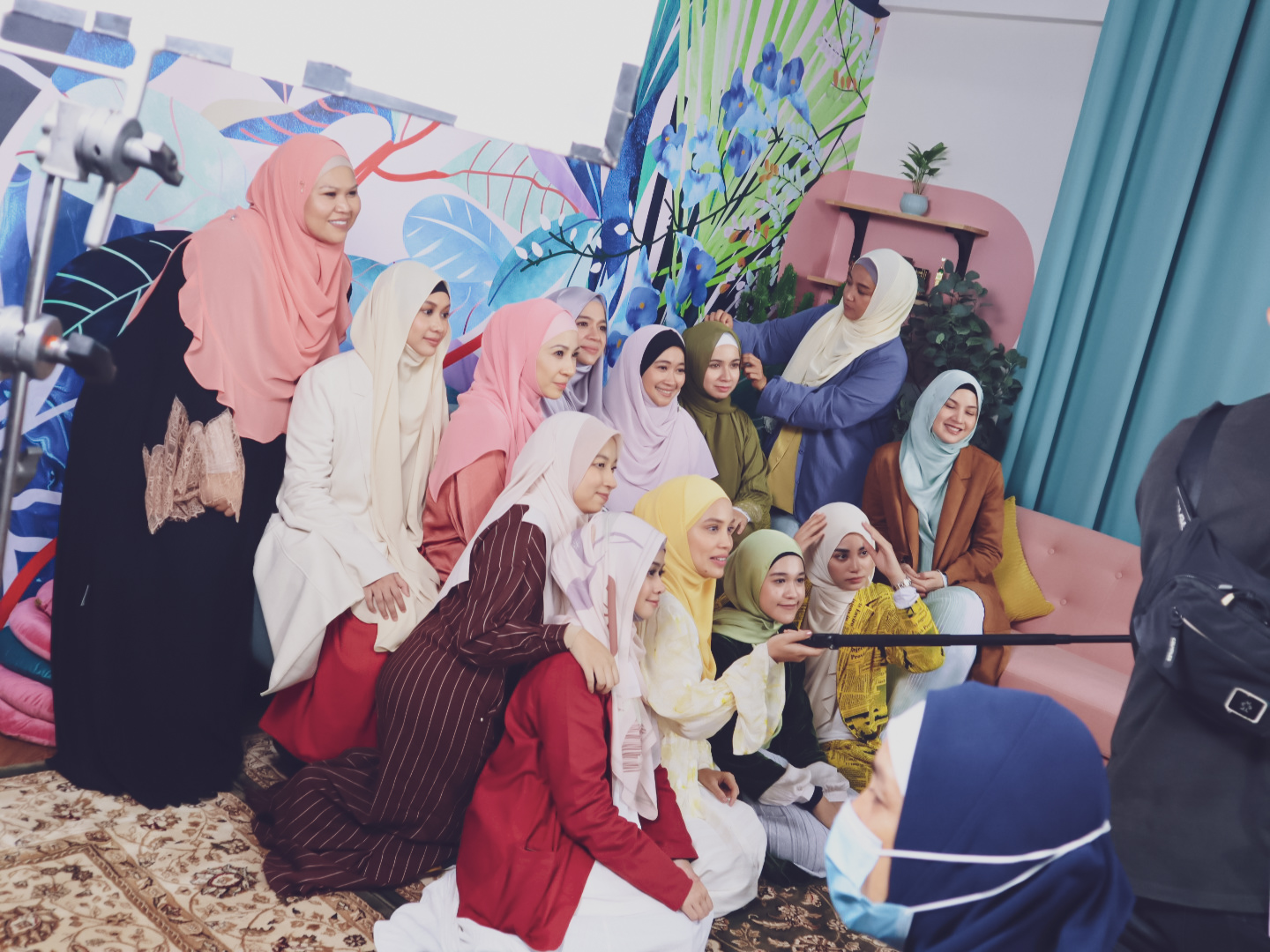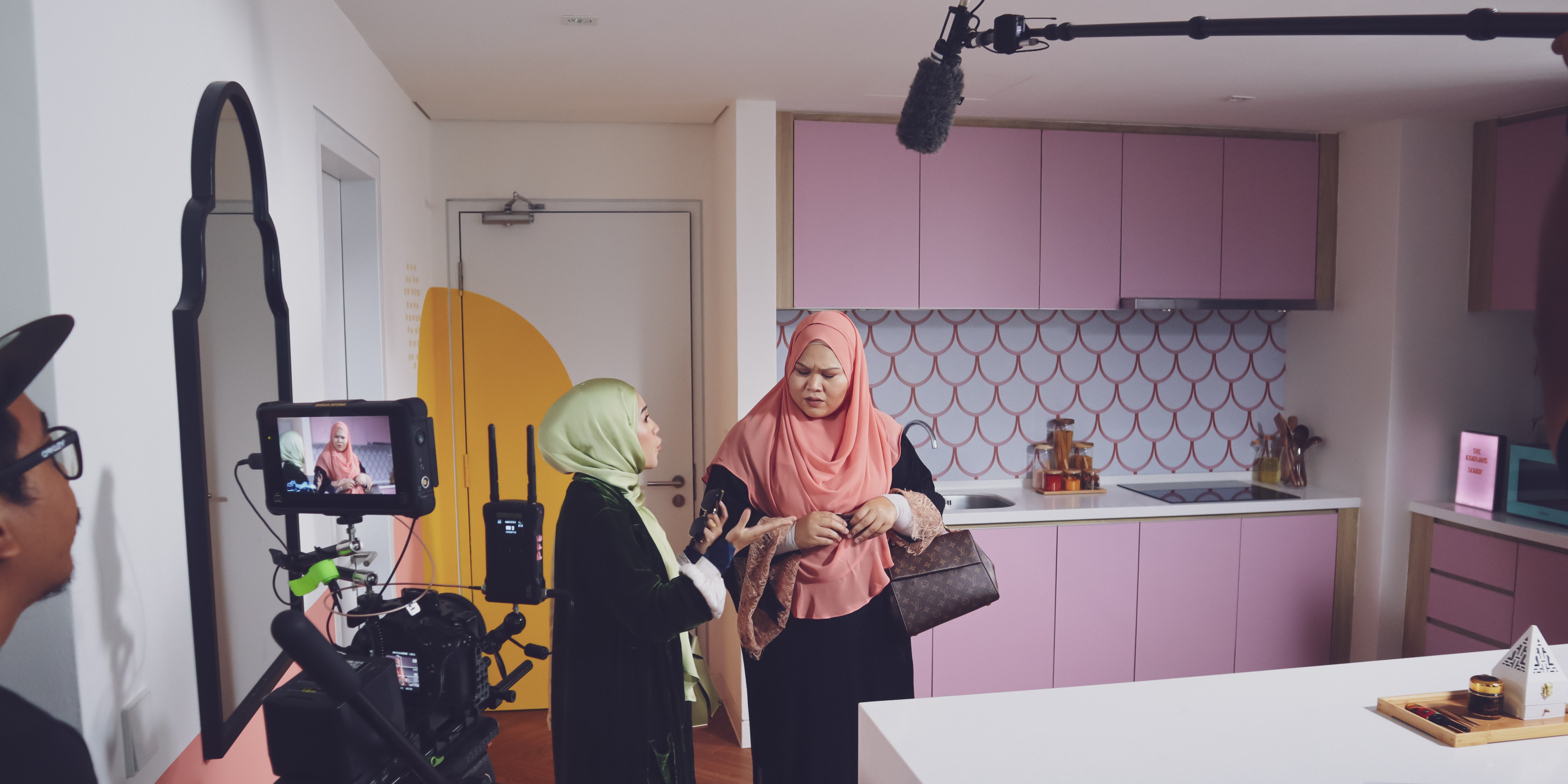A year later, Malaysian Islamic streaming service Nurflix struggles to produce original content amid lockdown disruptions
KUALA LUMPUR - Video-on-demand or streaming services offering non-religious Islamic content are rare, with only UK-based Alchemiya achieving any kind of multi-country subscriber base. A Malaysian start-up entered the public eye a year ago but progress to start streaming original content has been slow amid lockdown restrictions.
Malaysia’s Nurflix said in February last year it aimed to produce a full catalogue of programming for its subscription platform within a year.
It has not been able to keep to its punishing schedule of filming a dozen shows amid the confines of strict social distancing rules on set. Still, it is hard to blame the media start-up for lagging.
“Obviously, with the conditions we’ve had since the idea for Nurflix was initiated last February, it has been quite a difficult task to execute all our plans,” Amirrul Ar-Rahman, the service’s general manager, told Salaam Gateway. Still no launch date has been set for the streaming service to launch.
“Nevertheless, we are quite satisfied with the fact that we have managed to survive the pandemic and even made some ground.”
When Salaam Gateway last spoke to Nurflix, in July last year, the OTT provider was planning to have 12 shows in Bahasa Melayu finished and available for streaming by October. With a launch date in January 2021 pencilled in, it had hoped to attract a million paying subscribers in its first year thereafter.
Of course, that was during the quiet period of the pandemic in Malaysia when social distancing restrictions were negligible and largely unfettered filming was possible. There followed more forthright lockdowns later on in the year that caused filming to stall.
Hana Ismail, a producer on Nurflix’s flagship show, The Khadijas, said the uncertainty has been unbearable, with restrictions closing sets at times and preventing many of her cast and crew being present, even when studios have been open.
“The regulations have been a challenge, but the uncertainty has been even worse—the fact that next week you could have a totally different type of lockdown. With lockdown restrictions changing and extending for the last few months, we haven’t been able to be sure when we can actually work,” Hana told Salaam Gateway.
Still, the pilot episode of The Khadijas was completed last year and posted onto the Nurflix platform late last month, along with three other original series, some religious instruction programming and an Islamic music show.
Hana’s dramedy features a group of 11 women, all Malaysian celebrities, supporting each other as they perfect their deen.
Moments after the pilot appeared on the Nurflix platform on Jan 22, its servers were jammed, according to Hana.
“The response was quite overwhelming. That was obviously fantastic for us, once we managed to increase the bandwidth, but it also put us under more pressure. ‘Oh my god,’ we thought, ‘now we’ve got to shoot the next episode with this pandemic going on!’,” said Hana.
“At the same time, the response that we got was very encouraging because it reinforced our opinion that people will appreciate the content more because there is just such a lack of positive content like this outside of Nurflix.”

The cast of The Khadijas taking a wefie on set. Photo supplied by Nurflix.
Though it brands itself a “Shariah-compliant streaming service”, the channel’s programmers have steered away from a full catalogue of preaching imams and the focus is on ethics and the teaching of morals across the comedies and dramas in its catalogue.
“As has always been the case with any spiritual entertainment, the challenge has been to make it not boring while delivering a strong message and being aesthetically pleasing,” said Amirrul.
Nurflix has styled itself as “Sopan Stream”, where “sopan” is Malay for decent or polite.
“The ideal situation would have been to have done this two years back. It bothers me so much that sometimes, when we are stuck at home, the things that we are fed on in the media today is very worrying for the children,” said Amirrul.
With its content still free to air, only 16,000 people have so far subscribed to Nurflix, which Amirrul puts down to funding limitations that prevent a full marketing budget. In July last year, Alchemiya founder Navid Akhtar told Salaam Gateway he estimates anything between 70,000 and 100,000 subscribers would provide the sweet spot for a streaming start-up to invest in the infrastructure it needs to scale up.
“If we can’t shoot, we can’t market ourselves aggressively,” said Amirrul. “It's been a domino effect that has been brought about by lockdowns.”
Even without aggressive marketing, Nurflix’s social media presence after a year is promising, with a follower base of 26,000 on Instagram and just over 16,000 on Facebook. These numbers make it a “micro influencer”, according to one metric by branding firm AnyMind. The Khadijas, with its 9,531 followers on IG since its first post in November, is also close to becoming a micro influencer.
Nurflix is still privately funded, which Amirrul said “parried down” expectations “quite extensively”. However, a new crowdfunding model is on the horizon with benefits given to supporters.
Amirrul is also looking to introduce corporate sponsorship for Nurflix’s programming, though he is less interested in allowing product placement.
In contrast, Alchemiya, which started in 2013, last year said it was at a place where it didn’t need investors anymore with steady subscriber growth and a sustainable revenue stream. Last week Akhtar said in a blog post that the service reaches subscribers in over 30 countries.
Like Alchemiya, Nurflix is also seeing demand for its Islamic and Muslim-focused content.
“The good thing about the pandemic is that people have actually seen the need for content like ours, and it has expedited a lot of other things, like people getting better wi-fi connections and getting used to streaming things on their computers,” said Amirrul.
“The pandemic has pushed us a lot more than we had expected and made us become more resolute and believing in the importance of what it is that we're doing today.”
(Reporting by Richard Whitehead; Editing by Emmy Abdul Alim emmy.abdulalim@salaamgateway.com)
© SalaamGateway.com 2021 All Rights Reserved
